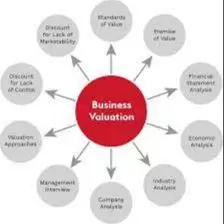FAQs ABOUT SELLING A BUSINESS
Selling a business can be a complex process filled with important decisions. This section addresses five of the most common questions we hear from business owners like you, covering topics such as determining your business's value, finding the right buyer, and negotiating a successful sale. If you're considering selling your business and have additional questions, we encourage you to contact us for a personalized consultation. Our experienced brokers are ready to provide expert guidance and support every step of the way.
How is a Business Sale Kept Confidential?
Selling a business requires discretion. Unlike real estate, there are no "for sale" signs. We ensure confidentiality by requiring all potential buyers to sign a Non-Disclosure Agreement (NDA) before accessing sensitive information. This protects your business, employees, and customers throughout the process.

How Will My Business Be Advertised?
How Do You Determine How Much a Business is Worth?
What's the typical training period after selling my business, and are there any restrictions on starting a new one?
Will Buyers Visit My Business?






FAQs ABOUT BUYING A BUSINESS
Buying a business is a big decision. This section answers 5 common questions we hear from buyers, like how to find the right business, secure financing, and negotiate a fair price. Have more questions? Contact us for a personalized consultation.
What are the key steps involved in conducting due diligence before purchasing a business?
Due diligence is crucial when buying a business. It helps you uncover potential risks and make informed decisions. Here's a breakdown of key areas to investigate:
1. Financial Due DiligenceReview financial statements: Analyze at least three years of profit and loss statements, balance sheets, and cash flow statements. Look for trends, inconsistencies, and red flags.
Scrutinize tax returns: Verify tax compliance and identify any outstanding liabilities or audits.
Assess debts and liabilities: Understand the business's debt obligations, including loans, leases, and accounts payable.
Analyze sales and expenses: Examine revenue streams, customer concentration, and cost structure to assess profitability and sustainability.
2. Legal Due DiligenceReview contracts and agreements: Examine customer contracts, supplier agreements, leases, and any other legal obligations.
Investigate licenses and permits: Ensure the business has all necessary licenses and permits to operate legally.
Assess intellectual property: Verify ownership and protection of trademarks, patents, and copyrights.
Check for litigation: Investigate any pending or past lawsuits or legal disputes.
3. Operational Due DiligenceUnderstand the business model: Gain a thorough understanding of the business's operations, products, services, and target market.
Evaluate customer relationships: Assess customer satisfaction, retention rates, and the overall customer base.
Analyze the competitive landscape: Identify competitors, market share, and competitive advantages.
Review key performance indicators (KPIs): Assess the business's performance using relevant metrics.
4. Employee Due DiligenceReview employee contracts and benefits: Understand employee compensation, benefits packages, and any potential liabilities.
Assess employee morale and turnover: Gain insights into employee satisfaction and retention rates.
Identify key personnel: Determine the importance of key employees and their potential impact on the business after the sale.
5. Asset Due DiligenceInventory and equipment: Verify the condition and value of inventory, equipment, and other physical assets.
Real estate: If applicable, assess the condition, ownership, and value of any real estate included in the sale.
Technology and infrastructure: Evaluate the business's IT systems, software, and data security measures.

Can I get financing to buy a business?
What are the advantages of buying an existing business versus starting from scratch?
How do business owners determine their asking price when selling?
Aren't most businesses for sale losing money?






BUSINESS NEWS & TIPS

Broker | License ID: 2012077679 | Real Broker LLC
+1(971) 645-6977 | marshall@primenwhomes.com








